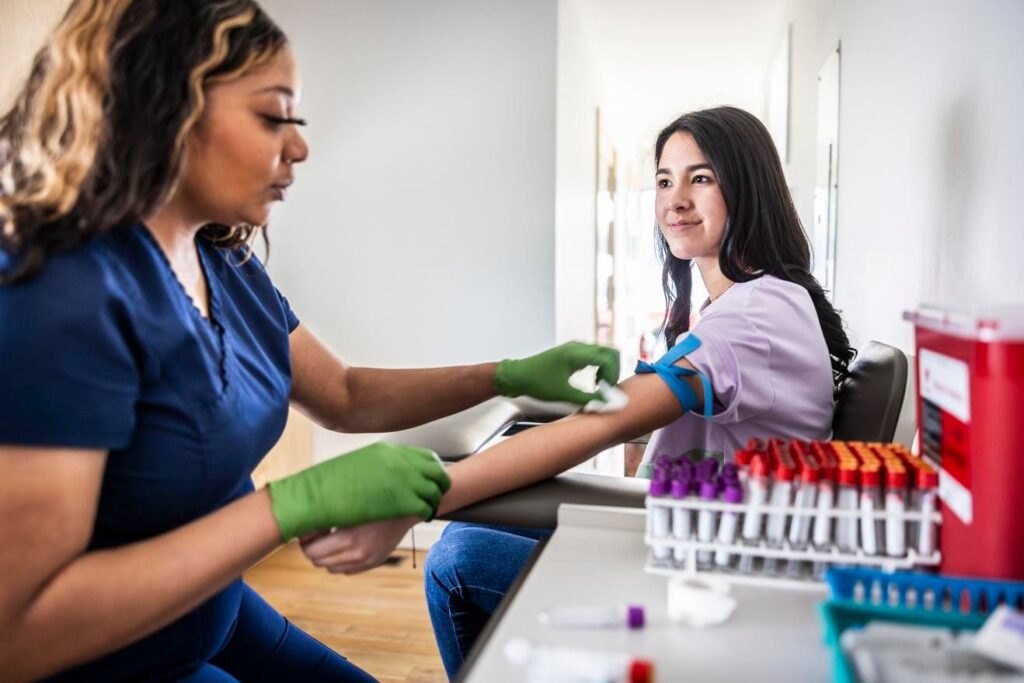Theresa Neil, a top designer in tech and founder of Femovate, a global femtech incubator.
In 1976, a small company called Genentech opened in the San Francisco Bay Area. Considered the first genetic engineering company, Genentech, one of the creators of recombinant DNA technology, has since gone on to become a household name for isolating the genes for human insulin, growth hormone and more. It all started with a vision and some careful investments that helped pave the way for world-changing technology and science.
Following the model that made San Francisco’s “Biotech Bay” successful since Genentech’s founding, women’s health biotech companies are creating next-generation therapeutics and therapies, building robust patent portfolios and providing hope to female patients looking for solutions for chronic health conditions, diseases and more. While there have been concerns about underinvestment in the sector, recent reports suggest investors recognize the industry as an untapped opportunity.
A Shift In Priorities
It’s been a long path to get to this point. For decades, women’s health research was dramatically underfunded, with less than 5% of biopharmaceutical research dollars targeting female-specific conditions.
But that’s changing as venture capital firms and biotech investors begin to recognize an overlooked trillion-dollar opportunity: precise, biology-based solutions for women’s health. New funds are emerging to accelerate innovation, from the Melinda Gates Action for Women’s Health fund to the American Heart Association’s Go Red For Women initiative. The market potential is so compelling that even the federal government is following suit, with ARPA-H committing $110 million to accelerate innovation in the space.
The shift toward biotech solutions in women’s health isn’t just about scientific advancement—it’s about creating sustainable, scalable businesses backed by robust ecosystems. It’s also about creating a new sector that provides women hope for healthcare, chronic conditions and more. As successful biotech hubs like Boston and San Francisco have demonstrated, combining scientific talent, capital access and established infrastructure creates powerful advantages.
New Markets And Promising Sectors
Rather than competing for existing market share, many biotech solutions are creating entirely new markets. Some companies are even developing new categories of treatment that could expand the market for women’s health solutions. Here are three sections that I think hold the most promise—both in terms of healthcare and marketing opportunities.
1. New Testing Modalities
Many women’s health companies are pioneering new diagnostic approaches that will transform disease detection and treatment.
For example, Smart Blood Analytics is leading this charge with their universal diagnostic platform that analyzes blood test results through the lens of biological sex and age. Meanwhile, ARPA-H, as part of the White House’s Sprint for Women’s Health, has backed Nura Health to develop a diagnostic blood test and personalized treatment platform for endometriosis. (Disclosure: I have provided pro-bono services to Nura Health.)
Companies are leveraging AI and machine learning to expand the realm of what’s possible in early screening and diagnosis of women’s health issues.
2. Breakthrough Therapeutics
Femtech companies are also developing new therapeutics that provide novel solutions to increasing women’s health span.
Celmatix is pioneering therapeutics to extend healthy ovarian function and lifespan, addressing fundamental aspects of women’s reproductive health. And Gameto is developing novel ovarian therapy to prevent disease in menopause, targeting one of the most universal yet underserved aspects of women’s health, while the University of Iowa is advancing ovarian cancer treatment using personalized nanoparticles that leverage a woman’s immune system.
3. Next-Generation Treatment Delivery
Finally, companies are creating new treatments for health conditions, diseases and aging. Traditional drug delivery methods often ignore female anatomy and physiology. The Wyss Institute is developing an implantable lymphoid organ as a breakthrough therapy for late-stage and metastasized ovarian cancer.
What’s Next: Increased Support And Market Expansion
The women’s health biotech sector is gaining validation beyond venture capital as established pharmaceutical companies recognize the expanding market opportunity. Major industry players are starting to view women’s health as a primary market rather than a niche segment.
For investors and business leaders exploring the women’s health space, the path to success requires a different approach from traditional biotech. I’ve found the most promising companies are those running parallel tracks, building revenue through early-stage solutions like diagnostics or data platforms while advancing their breakthrough therapeutics. This isn’t just about financial sustainability, these companies are building valuable real-world datasets that inform their broader research and development work.
Beyond the usual metrics of IP and clinical trials, the successful companies will likely be the ones that truly understand women’s healthcare journeys. Look for strong advisory boards that include female healthcare providers and patients, and meaningful partnerships with existing healthcare networks. The most promising opportunities aren’t just about better treatments, they’re about fundamentally reimagining how women access healthcare and participate in their careplans. And just like Genentech did for biotech, these companies aren’t just creating products, they’re building entirely new categories.
As we enter 2025, the confluence of scientific advancement, market opportunity and industry validation suggests women’s health biotech is approaching an inflection point similar to what we saw with Genentech and the broader biotech industry. Those early biotech investments led to transformational scientific breakthroughs and created enormous value.
Today’s investments in women’s health innovation appear poised to follow a similar trajectory, not just changing healthcare outcomes, but in reshaping our understanding of what’s possible in women’s health.
The information provided here is not investment, tax or financial advice. You should consult with a licensed professional for advice concerning your specific situation.
Forbes Business Council is the foremost growth and networking organization for business owners and leaders. Do I qualify?
Read the full article here

